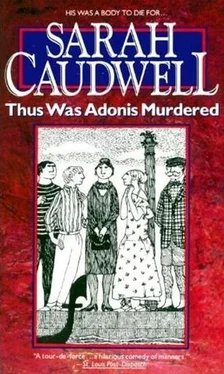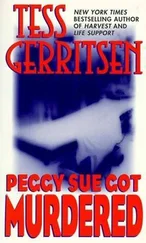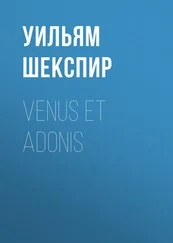To excuse my slowness, I say only that the Nursery is no place for quiet contemplation: and, as I have mentioned, the process of reflection was interrupted by Timothy’s telephone call.
I have been exercised in my mind how properly to deal with this, since Timothy shortly afterwards wrote a letter to Selena containing an account of his progress more detailed than he had thought economic to convey by telephone. I have debated whether it would be permissible, to avoid the tedium of repetition, to reproduce that letter immediately, rather than at the point in my narrative at which, by chronology of receipt, it ought in strictness to appear; and have concluded that it would.
As from Palazzo Artemisio Venice.
Monday 12th September.
Dear Selena,
As I promised on the telephone, I am writing to let you know in more detail what has happened since my arrival in Venice. I hope, of course, that it will prove a wasted effort and that Julia will have been restored, before it reaches you, to the safety of Lincoln’s Inn; but I am afraid, as things stand at present, that that is optimistic. I am writing this, by the way, in the dining-room of the Hotel Cytherea — feeling that it might be sensible to see the place where everything is supposed to have happened, I decided, after ringing you, to have lunch here.
After I left you all on Saturday, there were various delays before the plane finally took off, and by the time we landed it was already dark. Instead of going by boat across the Lagoon, I took a taxi across the Causeway to the Piazzale Roma and went from there by vaporetto down the Grand Canal to Saint Mark’s, which is the nearest station to the Palazzo Artemisio.
I found I was feeling uneasy, almost apprehensive. I had forgotten how much darker Venice is at night than other cities. The darkness is broken here and there by the white silhouette of a floodlit church or palazzo; but its brightness is cold and disquieting — the building itself seems nothing but a clever lighting effect. Indeed, the whole city seems somehow illusory, like a stage set for a death-and-daggers melodrama. One feels the designer has overdone it rather — the water is too black, the alley-ways too narrow, the silence of the gondolas too improbably sinister for anyone to believe they are real. But I remembered that a man really had been murdered.
If Julia had still been in custody, I should have felt obliged to take some immediate step on her behalf, though what I could usefully have done at that time of night I have no clear idea. As it was, I felt justified in going straight to the Palazzo Artemisio. I was admitted by the housekeeper, who clucked round me very amiably, apologizing on Richard Tiverton’s behalf for his not being well enough to welcome me in person. The Palazzo itself, though, is not exactly what I would describe as comfortable. The late Miss Tiverton seems to have had a fancy, which I do not share, for living in a museum: I hardly dare move for fear of damaging something.
On the following morning, Richard Tiverton joined me for breakfast. He told me with many apologies that he did not yet feel able to give his mind to discussing his tax affairs. Having chosen to come to Venice by sea rather than air, he had found uncomfortably late that the sea did not suit his digestion: he was still feeling very unwell — looking it too, poor boy.
Wanting to begin as soon as possible to do something about Julia’s problems, I did my best to encourage him to a leisurely recovery.
“I was intending,” I said, “to add a few days’ holiday to the end of my stay in Venice. I should be quite happy, if you don’t feel I’m imposing on your hospitality, to take it at the beginning rather than the end.” I meant, of course, that the fee for my services would not be increased by the delay; but that is hardly something, even in these permissive days, which one can say outright to the lay client.
“Thank you,” said Richard, “that’s very kind.” Whether he understood the financial implication of my remark or had expected, on the basis of his memory of public school, that I would tell him to pull himself together and face up to the Finance Act like a man, I am not entirely sure.
Not wanting to disclose to him that there was any competing claim on my professional energies, I decided to make any telephone calls relating to Julia from the nearest bar rather than from the Palazzo, where the only telephone is just by the front door — not at all a convenient place from the point of view of privacy. After breakfast, therefore, I went out, saying that I intended to spend the day wandering round Venice.
It was a frustrating morning. I wanted, of course, to talk to Julia as soon as possible; but the travel agents had been unable to tell me exactly where she was staying in Chioggia. Graziella, obviously, would have known; but there was no answer from the number they had given me for her. The police, presumably, would also have known; but to telephone them without introduction and knowing nothing of the case seemed hardly calculated to impress them with my professional standing.
At last, through the emergency number for the British Consulate, I managed to track down a Signor Vespari, whose duties during the weekend had included receiving the news that one of those under the Consulate’s protection had been murdered and another was suspected of the crime.
Signor Vespari agreed to join me for lunch at Montin’s — the restaurant in the Dorsodouro which Ragwort likes. He told me what little he knew about the murder — that is, about the Finance Act and the unfortunate impression made by Julia’s denial of any acquaintance with the victim — and we discussed at some length the steps to be taken to protect her interests. We agreed that after I had seen her I should talk to the police officer in charge of the case — Signor Vespari undertook to arrange this for me. We both felt, at this stage, that the case against Julia was so slight that the police must be doubtful whether to pursue it.
After lunch he was kind enough to invite me back to his flat and to allow me to make my telephone calls to Julia and yourself. He is, perhaps, quite enjoying the excitement of having a murder on his hands — generally speaking, it seems, the British in Venice do nothing worse than get drunk in Saint Mark’s Square.
It was in a mood, therefore, of reasonable optimism that I took the vaporetto across the Lagoon to Chioggia. I made my way to Julia’s hotel and was greeted, as I approached the reception desk, with the familiar words, “Hello, Timothy, come and have a drink.”
Physically, at any rate, her recent difficulties seemed to have done Julia no harm. There has been, it is true, some increase in her customary dishevelment: she looks like one of Priam’s daughters after a more than usually trying rape — but one, all the same, who during the Siege of Troy has eaten well, slept well and done plenty of sunbathing.
The trouble was that she knew nothing about the murder. I mean not merely that she is innocent of any complicity, but that she had no idea how or when it was discovered, or why suspicion had fallen on herself. There she was, she said, peacefully eating spaghetti in the dining-room of the Cytherea, doing no harm to anyone, when she was summoned to the Manager’s office. The peremptory terms of the invitation led her to expect a rebuke of some kind; but she supposed it to have something to do with an episode earlier in the day, of which I gather she has already written to you, involving one of the waiters.
In the Manager’s office she found, in addition to the Manager himself, two police officers. This, she felt, was making altogether too much of the matter, since after all, she said, the waiter had been perfectly willing. It did cross her mind, however, that he might have been even younger than he looked and that she did not know precisely what age, under Italian law, was regarded as that of consent. When, therefore, the police officers told her that they were enquiring into the death by violence of Mr. Edward Watson, it was with some relief that she told them she knew no one of that name.
Читать дальше











